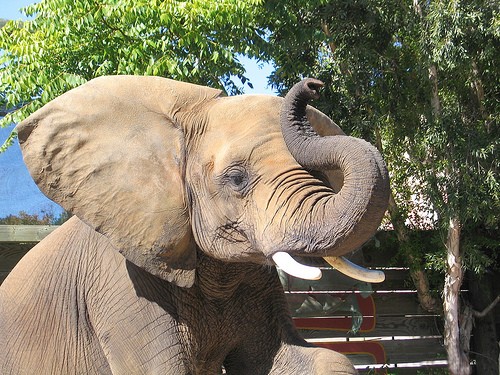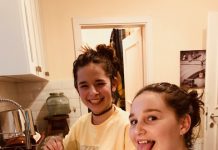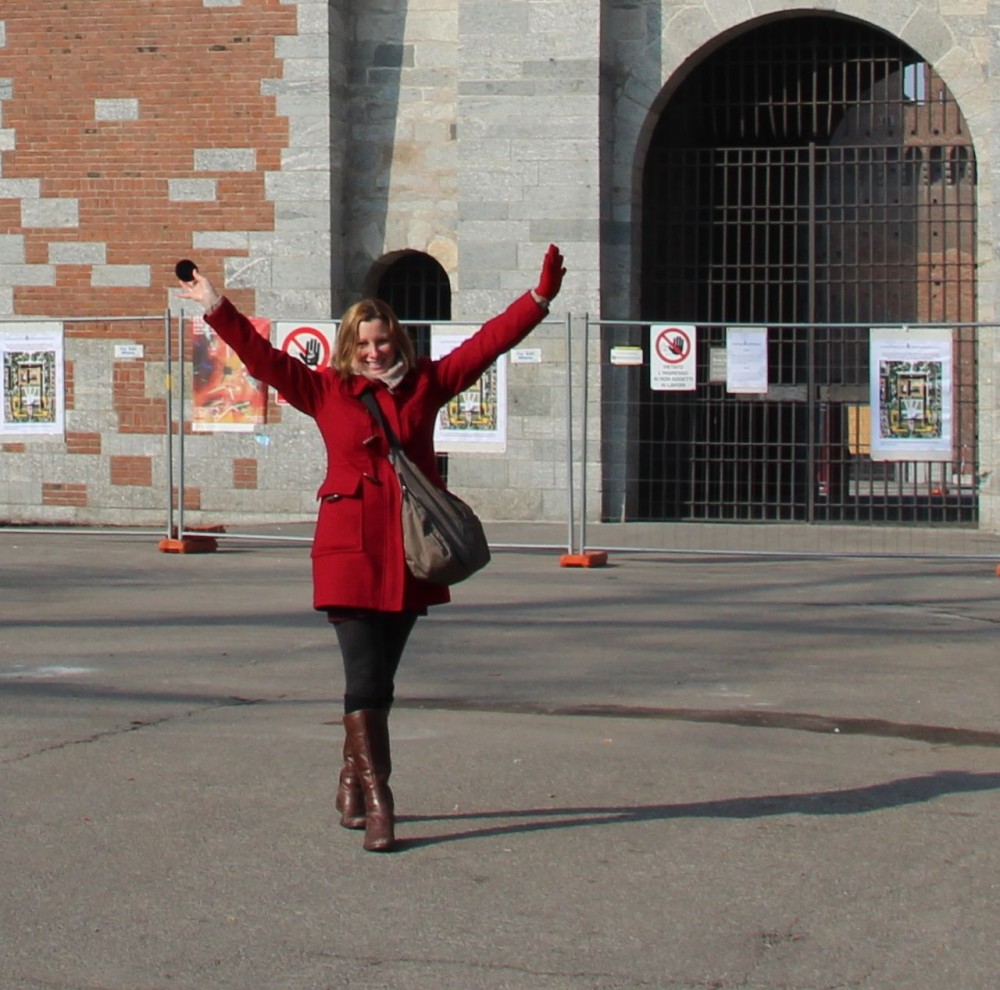“We cannot solve our problems with the same thinking we used when we created them.” Albert Einstein
How to eat an elephant…
Is it me, or is there a giant elephant in the room?
Maybe it was Miss America that said it in a speech, but every candle I blow out, every star I wish upon I ask for World Peace. Silly right? but still I hope.
It is a complex problem the world is facing today with the refugee crisis, and when I look at any problem, I want to fix it. I visualize the entire situation, analyze it, and try to figure out the solution. But what trips me up is…
How can we figure out the answers when we can’t even see the entire problem? So many facets are hidden, and the conspirators unknown.
This morning I realized the refugee crisis is not for me to solve. I cannot change governments, I cannot catch terrorists, and I cannot stop war.
The situation feels so overwhelming to me, being the person who cries at elementary school functions and arrives wearing sunglasses to hide my tears, I am normally empathetic to a fault. But this time, faced with picking a side on the refugee crisis, I retreated into myself. It was easier not to feel anything than to try to solve such an unsolvable problem. To actually admit how far the world has immersed itself into hot water, I blocked it out by surrounding myself with a thick wall of political garble.
I started to cocoon myself after watching the news. I haven’t viewed it in over 15 years. Ignorant bliss, I called it. Then when Hungary, and France started showing up in my Twitter and Facebook feed, I decided it was time to break my fast.
I went into the virtual media world; reading everything I could and I did not resurface for 6 weeks. My husband was very worried. The vortex sucked me into the center of news combat, a little online micro-war. Shamefully true, I was blown from one side of the issue to the other, depending on the powers that may; different countries, different propaganda and different truths, and sometimes I thought my head would explode. I felt depressed, like the situation was so close to us but I was completely powerless.
Before the Middle East started arriving in massive numbers to Europe, honestly I knew very little about their prominent religion. My interactions back home were limited to just two friends whom we have known for a very long time and the few families here in town that utilize the food bank service.
My new education from the media left me full of fear. I feared Sharia Law. I worried about birth rates in the Middle East and how that would affect the fabric of European culture. I wondered how Muslim’s would integrate, would they come to our parent teacher meetings and our festivals, would they too volunteer for our community as one community or would a parallel community form in our village. Women’s rights issues were on my mind. Would we stand side-by-side fighting against forced marriages, the burqa, stoning unfaithful women and the end of genital mutilation. I worried that Europe would have to accept Muslim culture and let their men have up to four wives. I asked myself how will I educate my own children to accept such a different way of life. It felt extreme to what we are used to. I thought about the welfare system and how taxing it will be on the taxpayers who are already here, and with so many more arriving, how would our economies cope. And then there was the five pillars of Islam, declaring Muslims superior to Christians, Jews and Atheists. I feared refugees and migrants would bring their war to Europe and with them, their belief of us being infidels, the inferior religions. After all, who could blame me, this was blasting on my computer over and over again.
Perhaps in the last 15 years the news has changed so slowly to propaganda that most people haven’t noticed this change, or how uninformative the news has become.
The media is to blame for the mass racism towards Muslims. The media has not taken their job very seriously in covering the war fairly or the refugee crisis. They have a responsibility to tell us the news, not extreme versions that will stick for a few hours in the media currents until the reader loses interest and moves on. Perhaps that is what news has become. They make a living from our 30-second attention span by filling our minds with shocking headlines to grab our attention and us civilians are very impressionable to it.
A story can change the viewpoint of an entire nation, slander another and completely ruin lives with a few clicks of the mouse. We latch onto these snippets as truths, and because we don’t have a complete understanding of what’s going on, we are vulnerable to their suggestions. Through fear mongering, we are frozen in a state of either fear or indifference, inundated with partial information. Sure we talk a good talk online, picking a side, and blaming each other, but actions are not being taken.
The unbiased stories are rare to be found. Not for lack of searching, but they don’t get the amount of hits to come up in our search engines. Infact governments pay a whole lot of money to make sure their propaganda comes up first. News stations are hardly better, most are controlled and paid for by the rich and their agendas are pushed forward.
‘With weapons you fight terrorists, with education you fight terrorism.’
So what changed my thinking?
This video for one, watching the Syrian families arriving in boats in Greece where Christian volunteers help them ashore. It moved me to tears listening to the honour they felt in helping the refugees.
How did I miss the simplicity of our obligation to be humanitarian? We cannot let anyone die. If we have the opportunity to save even one life, we must take it.
Second, this video of young boys wearing white helmets that go in after the bombings in Syria, risking their own lives, to save the children among the rubble. They show such bravery, while I hide behind my computer. It put me to shame.
And lastly, there is the similarity to my own story. I am, after all, the daughter of a Hungarian refugee. The world often confuses the citizens of Hungary with the Russian communists who ruled them. We have lived with the same prejudices the Syrians are experiencing today. Communists tortured my people for 60 years, just as terrorists wreak havoc in Syria today forcing them into exile. Refugees are not terrorists. Refugees were not communists. It is a misconception.
My story 1956, LEST WE FORGET my grandparents, my father and my uncle were refugees from the 1956 Hungarian revolution. They crossed the border with little more than a suitcase into the country of Austria and eventually arrived on foot to the refugee camps. My kids are around the same age as my uncle and father were then, 8 & 10. I can only imagine how scared they were to leave everything they knew behind and were not even allowed to say goodbye. They slipped away in the middle of the night along with 200,000 other Hungarians from every walk of life. Together they left to escape the unjust and cruel rule of the Russians and the Warsaw Pact .
When they arrived in Austria, they were very grateful to have had any help waiting for them. My family never complained about any prejudice, or being treated differently throughout their lives; they always thought of the family they left behind having it so much worse. The Soviet Party continued to annihilate anyone that stood-up against Russia and their communist party. Public discussion about this revolution was suppressed in Hungary for more than 30 years, along with many of the records of what was going on in Hungary under Russian rule. This topic is still being analysed in universities today.
Imagine if my grandparents were accused of being the communists that they were running away from and turned back to meet their death. I would not be here today to tell you how grateful I am for the humanitarian efforts of Austria, The UK and Canada, when they helped my family start a new life over 60 years ago. And for the record, neither my grandparents nor my uncle or father went on to try and convert Canada to a communist regime. Instead, refugees feel an enormous amount of gratitude and love for their new countries. The next generation born there, like myself, identifies with their new country’s culture as their own. I am a proud Canadian.
In 1956 the boarders were swarming with refugees just like today. Eventually my family was sent to Surrey England where my grandfather worked in the tobacco factory. The boys learned English in school. A year later, they distributed the masses of refugees to other commonwealth countries. England paid for their four plane tickets to Victoria, B.C. CANADA where they met other Hungarian refugee families. The city of Victoria housed them in an old Girl Guide facility.
My grandmother remembers cooking for many people, five families in total. She asked for simple fresh ingredients; chicken, potatoes, flour, eggs, tomatoes and peppers instead of what they were given (instant foods, tinned vegetables and pancake mixes) and the women looked after the household, while the men went to work. It was the flavours from back home that brought them comfort in a time when everything was so strange. The stress of such displacement is immeasurable and everyone reacts differently.
Slowly, once the men started working full time (usually placed in entry-level positions throughout the city) one-by-one they had enough money to leave the group housing.
My grandfather was over forty years old when he reached Canada, and he was placed at the Royal Jubilee Hospital as a janitor. He remained there until he retired at 60 years of age. Although it was far below his education and his abilities, he loved having work.
“There is honour in all work”, he would tell me.
Quickly they were able to buy a house of their own, and a car… after a few years they were assimilating to Canadian culture very nicely, could speak the language and even grew to love Canada, especially living next to the Pacific Ocean. Even today in White Rock, my grandmother loves being so close to the water.
The Hungarian refugee families all kept in touch over the years too. They were a mix of Jewish and Christian families. My grandmother is the only one left alive from the parents who made their decision to leave in 1956. At 94, she still lives close to her children.
My grandparents missed Hungary for the rest of their lives and my grandfather was homesick until the day he died. If you talked to him about Hungary he would cry. He was a patriot and a proud Hungarian. He remembered and loved the Hungary before the war. It deeply wounded him to watch his beautiful Hungary be conquered and to watch his people suffer. Then he had to watch his people try to recover from communism, and struggle through poverty, which doesn’t happen overnight. He gave up his country for us. After, what remained was a kind and grateful gentleman, with a quiet resilience. He only wanted to give his children a chance in life. For his sacrifice, I have to thank my Nagypapa.
If the Syrians are no different, then they want to save their children from certain death. I know I would do anything to keep my children safe, including crossing a dangerous sea, and selling everything I have.
During communism in Hungary, Hungarians lived in fear of being interrogated by the AVO and made to snitch on friends and family or they would be killed. Some just disappeared, no trial just execution. When news would reach my family in Canada, it left them helpless. The AVO continued to torment citizens until 1989 when communism finally ended. More on the story here.
By then my grandfather had four grandchildren who were Canadian. I was the youngest at 16. He was too old to go home.
***Perhaps my story could serve as a reminder to other refugees living throughout the world. Our people were tortured, killed, and suppressed for generations. Even if Hungary is not ready to take refugees themselves, I remind the rest of us that escaped, that we had an opportunity for a better life thanks to this exact type of exodus. Today, Syrians are also being tortured, suppressed and killed at the hands of ISIS. Their people have been in civil war for years. We all have endured so much. It is now our turn to show compassion.
My friends at Languedoc Solidarity – Food Donations and Drop Sites are helping to gather food to support a group of refugees in the city of Beziers. They are doing what they can to help. It is that simple. Find a local volunteer community and help, it doesn’t matter who needs help, just start helping.
They are saving lives, like superheroes. Does Superman ask what’s your religion? I think not!
Take away your politics, your religion, and what is left? People need our help or they will die. If they assimilate, if they bring in Sharia law, or the rest of our controversial questions that come with mass migration, well that should be left up to the professionals, the politicians and our world leaders to decide what is best, and of course that includes how to screen for terrorists. We have to have faith in the people we elected to power.
I am not here to judge countries with less of an infrastructure to take refugees, places that are crippled in fear, or perhaps still economically unsound to do their part. That’s up to them. But for me personally, living as a Hungarian/Canadian in France, I feel a need to help in some small way.
It has taken me an embarrassing long period of time to get to where I am on this topic, from against migration to a middle ground. And I understand that people want me to go all the way over, to love unconditionally and to accept our differences. I am getting there, I am trying, one small step at a time. Listen, if I can make my way to the middle ground so can everyone else, to eventually solve the problem. Including Muslims, they too must meet us in the middle ground.
For those of you also struggling with this topic, note Syrians want to go home. Just like my grandparents wanted to go home. Let’s hope it doesn’t take 60 years to sort out Syria. This was my epiphany today.
The best part, by helping those in need, you don’t need to solve world peace, just go through your cupboards and donate a few tins of non-perishable food items. Go through your clothes and give that warm jacket that you haven’t worn in years to charity. By donating to refugees directly or giving to your local food bank, both in turn helps the crisis.
No amount is too small.
Be the change in the world that you want to see.
‘If you change the way you look at things, the things you look at change.’ Wayne Dyer
How do you eat an elephant? One bite at a time!











What a wonderful quote. And I get it, we are busy with our own 9-5 jobs, picking kids up from daycare, dealing with elderly parents, or trying to figure out how to stretch our own budgets; we have our own worries. So it is easier to say, well let us pass the buck on to someone else. Here in France, many people believe it is the state’s problem as they have systems in place to absorb refugees. SO the everyday chap walking on the street, this doesn’t even register as an issue for them. I am very proud of the Anglophone community who lives in the Languedoc who has come together during this time. Culturally, we are used to giving more, anywhere from: Save the Whales, Greenpeace, Christmas Stamps, Food Bank…or whatever is our favourite charity of choice. So for us living outside of the commonwealth, it is a no brainer to donate.
I think your idea is brilliant! I’m happy to hear some solutions. The more I learn about the situation, the less I can come up with a concrete plan. Thanks for you two bits my friend. Are you here in France?
My idea is for the UN to establish ‘safe havens’ in North Africa and the Middle East, protected by them. Have houses, work, education and health care supplied so that people fleeing repressive regimes can settle there and lead normal lives.
Most of these area are deserts but what they need is water to make them into productive regions.
This could be done by using solar power to desalinate sea water and pipe it to the regions, refill ancient lakes and use this water to establish agriculture and other industries.
With a global population expected to reach 9 billion by the middle of this century and increased global warming expected to increase desertification causing a lack of food and water in these places the current instability we are experiencing in the world will only increase with more famines and political unrest.
Yet, we have the technical knowledge and techniques to be able to achieve this. We have also developed ways of preserving and making the most of water in arid regions by using ‘sand dams’, terracing hillsides and other means.
Although costly in terms of finance this would not be impossible – all it needs is the active co-operation of world governments and the political will to make this happen.
If we do not take action now it will become more costly in the long term, perhaps even impossible with increased political instability resulting in devastation for many areas of our planet.
Thus we will reduce the migration pressures on the developed world, provide extra living space, provide work, provide housing, education and heath care and enable the people moving to these ‘safe havens’ to have productive lives.
The world living space will be increased as will food production.
Just some 6,000 years ago the Sahara Desert was productive with grasslands, trees, other vegetation and fresh water lakes fed by seasonal rains.
Hi Eva, what a great piece you’ve written here. I am sure many people have similar feelings about wanting to hide and cocoon themselves because they feel helpless. The refugee crisis is such a huge problem, but there is always something to be done. One of my favorite quotes is by Edmund Burke: “The only thing necessary for the triumph of evil is for good men to do nothing.”